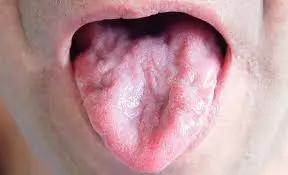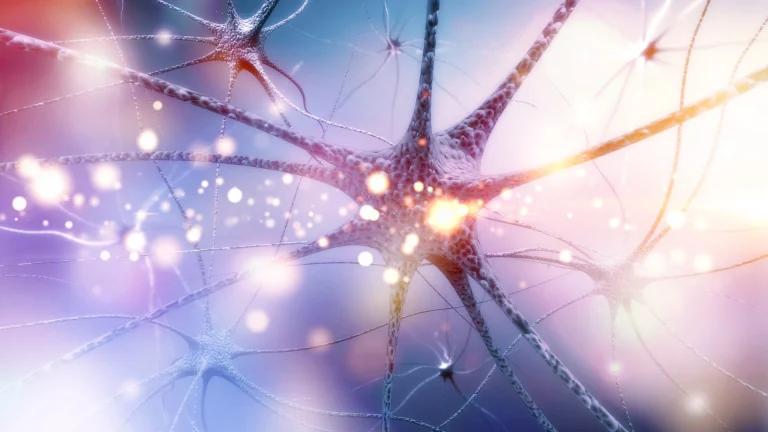
Motor neurone disease (MND), also known as amyotrophic lateral sclerosis (ALS) or Lou Gehrig’s disease, is a progressive neurological condition that affects the motor system, which controls voluntary muscle movements. This rare disorder targets the motor neurons, specialised nerve cells responsible for transmitting signals from the brain and spinal cord to the muscles throughout the body. As these neurons degenerate, individuals gradually lose the ability to control their movements, leading to muscle weakness and shortened life expectancy.
The complex nature of MND
While researchers have made significant strides in understanding MND, the exact causes of this debilitating condition remain unknown. Current evidence suggests that a combination of genetic, environmental, and lifestyle factors may contribute to the development of MND, with each case potentially arising from a unique mixture of these elements.
Genetic factors
For a significant portion of individuals with MND, genetics play a crucial role in the onset of the disease. Approximately 5-10% of cases are linked to inherited genetic mutations, which can be passed down through families. These inherited forms of MND are typically associated with specific gene defects, such as mutations in the C9orf72, SOD1, FUS, and TARDBP genes.
However, it’s important to note that even in cases where a genetic predisposition exists, additional factors are often required to trigger the actual development of MND.
Environmental factors
Numerous studies have explored potential environmental factors that may contribute to the onset of MND. While the evidence remains unclear, certain associations have been identified:
- Exposure to agricultural chemicals, such as pesticides and herbicides, has been linked to an increased risk of developing MND in some populations
- Prolonged exposure to heavy metals, including lead and mercury, has been suggested as a potential risk factor, although the evidence is not definitive
- Traumatic injuries, particularly those involving the head, neck, or spinal cord, may play a role in triggering MND in some cases, potentially by damaging or compromising the motor neurons
It’s important to note that these environmental factors alone are unlikely to cause MND directly. Rather, they may act as contributing factors or triggers in individuals who are already genetically predisposed or have other underlying vulnerabilities.
Lifestyle influences
Certain lifestyle factors have also been investigated for their potential role in MND development. While the evidence is not solid, some associations have been noted:
- Individuals with a history of high-intensity physical activity or strenuous exercise regimens may be at a slightly increased risk of developing MND, potentially due to the increased metabolic demands and stress on motor neurons
- Military service has been associated with a higher incidence of MND in some studies, although the reasons for this association are not fully understood
- Smoking and other lifestyle factors that contribute to oxidative stress and inflammation may play a role in the development or progression of MND, but more research is needed
It’s important to note that these lifestyle factors are not direct causes of MND but may contribute to the overall risk profile in combination with other genetic and environmental factors.
The complex interaction of factors
While researchers have identified various potential contributors to MND, it is becoming increasingly clear that the disease is likely the result of a complex relationship between multiple factors. In most cases, a combination of genetic predispositions, environmental exposures, and lifestyle influences may converge to create the perfect storm for the development of MND.
Early symptoms of MND
Individuals with MND experience a range of early-stage symptoms in different parts of the body, including:
- Muscle wasting and weakness often start in the arms or legs leading to weight loss
- Slurred speech and difficulty swallowing
- Muscle cramps and involuntary twitches (fasciculations)
- Difficulty with tasks requiring fine motor skills, such as buttoning shirts or opening jars
- Uncontrolled emotional outbursts, like laughing or crying inappropriately (emotional lability)
A healthcare professional may notice issues with your muscles, the brain, or the nervous system and refer you to a neurologist, a specialist in brain and nervous system disorders. As time goes on other professionals including specialist nurses, physiotherapists, speech and language therapists, occupational therapists, dieticians and counsellors maybe involved in care.
Types of MND
While MND is a broad term that encompasses several related conditions, there are distinct types that differ in their specific symptoms, progression, and underlying causes.
Amyotrophic Lateral Sclerosis (ALS)
It is also known as Lou Gehrig’s disease, ALS is the most common form of MND. It affects both the upper and lower motor neurones, leading to a rapid and progressive loss of muscle control and function.
Progressive Muscular Atrophy (PMA)
PMA is a less common subtype of MND that primarily affects the lower motor neurones, resulting in slower disease progression and a focus on muscle wasting and weakness.
Progressive Bulbar Palsy (PBP)
PBP is characterized by the degeneration of motor neurons in the brainstem, which can lead to difficulties with speech, swallowing, and emotional control.
Primary Lateral Sclerosis (PLS)
PLS is a rare form of MND that specifically targets the upper motor neurones, causing muscle stiffness, spasticity, and slowness of movement, but without the characteristic muscle wasting.
Spinal Muscular Atrophy (SMA)
SMA is a genetic form of MND that primarily affects the lower motor neurons, leading to progressive muscle weakness and wasting, often starting in childhood or adolescence.
Understanding the distinct features of these MND subtypes can help healthcare providers tailor the diagnostic process, develop appropriate treatment strategies, and provide more accurate prognosis and support for individuals affected by the condition.
Support networks and resources
Living with inherited MND can be a challenging journey, but you don’t have to go through it alone. Various support networks and resources are available to provide information, emotional support, and practical assistance.
Organisations such as the Motor Neurone Disease Association (MND Association) offer a wealth of resources, including:
- Information guides and factsheets
- Support groups and forums
- Helplines and online chat services
- Advocacy and awareness campaigns
- Connecting with others who understand the unique challenges of inherited MND can be invaluable in coping with the emotional and practical aspects of the disease.
Conclusion
Motor neurone disease is a complex condition, with its causes rooted in a mixture of genetic, environmental, and lifestyle factors. While researchers have made significant progress in understanding the potential causes and underlying mechanisms, much remains to be uncovered about this disorder. Although there is no cure for motor neuron diseases, medicines and therapy can ease symptoms and improve your quality of life.
Sources
- Motor neurone disease – NHS
- What causes MND? – MND Association
- Motor Neurone Disease (MND) | Fact Sheet – Health Information – Brain & Spine Foundation
NowPatient has taken all reasonable steps to ensure that all material is factually accurate, complete, and current. However, the knowledge and experience of a qualified healthcare professional should always be sought after instead of using the information on this page. Before taking any drug, you should always speak to your doctor or another qualified healthcare provider.
The information provided here about medications is subject to change and is not meant to include all uses, precautions, warnings, directions, drug interactions, allergic reactions, or negative effects. The absence of warnings or other information for a particular medication does not imply that the medication or medication combination is appropriate for all patients or for all possible purposes.
.







